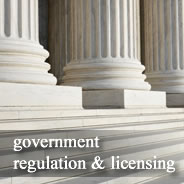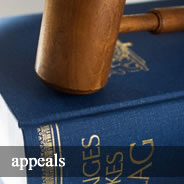The Commonwealth Court Strikes a Delicate Balance Between Environmental Protection, Economic Development, and Deference to the Legislative Branch.
In Pennsylvania Environmental Defense Foundation v. Com., -- A.3d – (2015),[1] the Commonwealth Court issued a decision that balanced statutory and constitutional environmental protections against economic development and deference to collateral branches of government. Specifically, in a 6-1 decision, the Court held that legislation authorizing revenue contributions to the General Assembly’s annual appropriations fund (“General Fund”) from a fund financed by oil and natural gas leases on public lands (“Lease Fund”) executed between the Department of Conservation and Natural Resources (“DCNR”)and various private parties does not violate Article I, Section 27 of the Pennsylvania Constitution (the “Environmental Rights Amendment”).
Petitioners Pennsylvania Environmental Defense Foundation (“PEDF”) challenged various provisions of General Assembly legislation affecting how the DCNR’s generated funds are controlled and allocated. The Court adjudicated three issues: (1) whether certain provisions of the General Assembly’s fiscal code which authorize the General Assembly to appropriate royalty monies from the Lease Fund, and effectively cap royalty appropriations from the Lease Fund to the DCNR at $50 million, violate the Environmental Rights Amendment; (2) whether the General Assembly’s use of revenue from the Lease Fund for purposes other than the protection of natural resources violates the Environmental Rights Amendment; and (3) whether the Governor has the authority to override the DCNR when determining whether to enter into future lease agreements for oil and natural gas extractions on public lands.
A necessary predicate to the Court’s analysis is the proposition that the Environmental Rights Amendment confers upon the Commonwealth a special fiduciary duty as a trustee: the Commonwealth’s natural resources are the public trust, and the Commonwealth’s citizenry is the trust beneficiary. The Commonwealth’s status as trustee creates two obligations: (1) an obligation to refrain from allowing or encouraging depletion of public natural resources; and (2) an obligation to affirmatively act to protect natural resources. However, the rights the Environmental Rights Amendment confers on the citizenry are not absolute: “the Commonwealth’s duties under the Environmental Rights Amendment must be balanced against the other duties owed by the Commonwealth to its citizens,”such as reasonable economic development to promote the general welfare and prosperity of the Commonwealth’s citizenry. "If anything, when environmental concerns of development are juxtaposed with economic benefits of development, the Environmental Rights Amendment is a thumb on the scale, giving greater weight to the environmental concerns in the decision-making process."
This fundamental proposition informed the Court’s analysis. First, the Court stated that, although the DCNR is statutorily charged with protecting natural resources consistent with the Environmental Rights Amendment,[2] “the Commonwealth is the trustee under [the Environmental Rights Amendment], not DCNR.” As such, just as the General Assembly is authorized to confer upon DCNR discretion regarding how the Lease Fund is used, the General Assembly is equally authorized to reassert control over the Lease Fund. Moreover, the challenged legislation impacts only royalty revenue from the Lease Fund. Additional revenues, namely rent revenue and bonus payments, remain unaffected. Thus, the Court concluded that PEDF failed to satisfy its burden and the General Assembly’s legislation authorizing it to appropriate certain revenues in the Lease Fund did not violate the Environmental Rights Amendment.
A related issue – whether the General Assembly’s $50 million cap on appropriations to the DCNR from the Lease Fund is unconstitutional because it is insufficient funding for the DCNR to accomplish its mission – implicated substantial separation of powers issues which underpinned the Court’s analysis. The Court explicated various decisions where the judiciary reviewed legislative appropriations and determined that, although courts are authorized to review the adequacy of legislative appropriations when the judicial branch is threatened, the relevant precedent demonstrates “a reluctance in, if not an outright refusal by, this Court to second guess the amounts of the General Assembly’s appropriations to Commonwealth agencies.” Consequently, the standard to apply when evaluating legislative appropriations is whether the amount funded is so inadequate that it impairs the proper functioning of an entity. Applying this standard, the Court held that the General Assembly’s current appropriations to the DCNR are not so deficient that the agency’s functionality is impaired because the PEDF provided no evidence that the DCNR’s functionality is impaired. The PEDF failed to meet its burden and the General Assembly’s effective $50 million cap on annual appropriations from Lease Fund royalties to the DCNR did not violate the Environmental Rights Amendment.
Next, the PEDF argued that the Environmental Rights Amendment is a constitutional limitation on how the Commonwealth, as trustee, may spend revenue generated by leasing public lands for oil and gas extraction. Essentially, the PEDF argued that the Lease Fund is a trust fund and must be spent consistent with the Environmental Rights Amendment’s purposes; namely, the protection of natural resources within the Commonwealth. The Court determined that, although the Environmental Rights Amendment imposes an affirmative duty on the Commonwealth to protect natural resources, it does not “expressly command that all revenues derived from the sale or leasing of the Commonwealth’s natural resources” must be used exclusively for those purposes. Instead, the only constraint in the Environmental Rights Amendment is that the funds be used “for the benefit of all people.” The Court determined that, in absence of express direction otherwise, what public benefit the funds are used for is within the General Assembly’s discretion. Consequently, the Court held that the Lease Fund is not a trust fund and the Environmental Rights Amendment does not require funds generated from the lease of public lands to be used to protect natural resources within the Commonwealth. Thus, the General Assembly did not violate the Environmental Rights Amendment by using funds appropriated from the Lease Fund for purposes other than the protection of natural resources within the Commonwealth.
Perhaps the most compelling aspect of the Court’s holding was the decision to adjudicate – over Judge Cohn-Jubelirer’s dissent – the Commonwealth’s cross-motion contending that the Governor has the authority to override any future DCNR decision whether to enter into a lease of public lands because the Governor is the chief of the executive branch, and the agency’s decision-maker is a part of the executive branch who serves at the pleasure of the Governor. The Court acknowledged the Governor's role as Chief Executive; however, it noted that while serving at the Governor’s pleasure, the DCNR head serves the Commonwealth’s citizenry because the agency has a statutory duty to protect and preserve the Commonwealth's natural resources under the CNRA. Moreover, the Governor has a constitutional duty to “take care that the laws be faithfully executed.”[3]Specifically, the Governor has an obligation to ensure that the CNRA is faithfully executed. The CNRA vests the DCNR with the exclusive authority to enter into lease agreements for the extraction of oil and natural gas on public lands, not the Governor.[4] As such, the Court held that the Governor can certainly influence the DCNR decision-making, however, "the ultimate decision lies exclusively with DCNR."
Judge Cohn-Jubelirer dissented to the section of the majority's opinion adjudicating the Governor's cross-motion. She argued that the Court is constitutionally constrained to hearing only actual cases and controversies and, because there has been no decision regarding future leases, the requisite controversy does not exist and the majority's opinion addressing the decision-making authority for future leases is dicta. In addition to her constitutional concerns, Judge Cohn-Jubelirer also expressed practical concerns about the majority's decision. Because there are no facts available to apply the law, the extent of the majority's decision regarding the DCNR and the Governor's decision-making authority is based entirely on contingency. Consequently, the scope of the holding is unclear because it is not constrained by facts. Even more problematic for Judge Cohn-Jubelirer is the basis of the majority’s decision: although the majority maintains its holding is grounded in statutory language, its reasoning suggests there is a constitutional dimension to its analysis because it invokes the Environmental Rights Amendment.
The Court’s decision is compelling for a number of reasons. Practically, this decision paves the way for future leases of public lands for withdraw of oil and natural gas and allows for increased uses for funds generated by these types of leases. This case also presents an insightful contrast of the branches of government and their respective roles and authority. Although the judiciary may be authorized to adjudicate disputes that implicate other branches’ policy decisions, the Court frequently defers to the other branches' constitutional authority and expertise because it is concerned with encroaching into the executive or legislative spheres and violating the separation of powers doctrine. But the deference is not absolute. The judiciary is charged with interpreting and applying the law and determining whether the other branches are acting within their authority. However, the Court is constrained to adjudicating actual cases or controversies. Here, the Court was in agreement that legislation giving the General Assembly authority to appropriate revenue from the Lease Fund and the amount of revenue appropriations to the DCNR was within the General Assembly’s constitutional discretion and restrained from second-guessing its policy choices. However, the agreement was fractured regarding whether the Court should exercise restraint and refrain from adjudicating the Governor’s cross-motion or whether the potential for future decision-making satisfied the necessary real controversy requirement such that the Court was authorized to adjudicate the dispute.
[2] “The primary mission of the Department of Conservation and Natural Resources will be to maintain, improve and preserve State parks, to manage State forest lands to assure their long-term health, sustainability and economic use, to provide information on Pennsylvania's ecological and geologic resources and to administer grant and technical assistance programs that will benefit rivers conservation, trails and greenways, local recreation, regional heritage conservation and environmental education programs across Pennsylvania.” 71 P.S. § 1340.101(b)(1) (“Conservation and Natural Resources Act” or “CNRA”).
[4] See 71 P.S. § 1340.302(a)(6) (“The department is hereby empowered to make and execute contracts or leases in the name of the Commonwealth for the mining or removal of any valuable minerals that may be found in State forests, or of oil and gas beneath those waters of Lake Erie owned by the Commonwealth, or of oil and gas beneath the land of Woodville State Hospital owned by the Commonwealth, whenever it shall appear to the satisfaction of the department that it would be for the best interests of this Commonwealth to make such disposition of those minerals.”).
By accepting you will be accessing a service provided by a third-party external to https://www.hmslegal.com/







